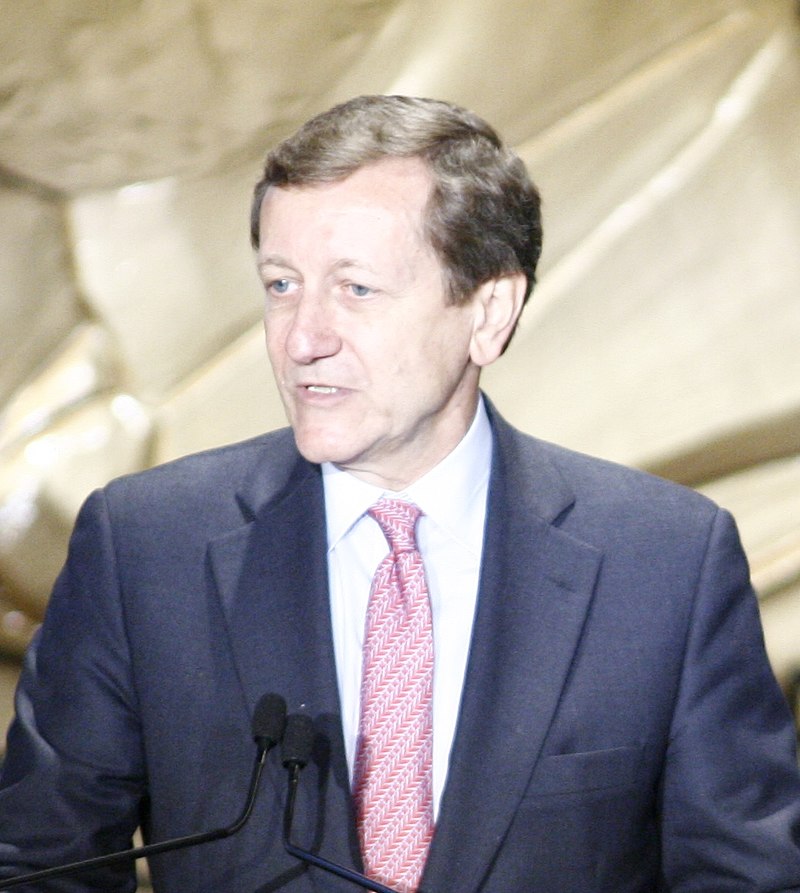American News
After erroneous Flynn report, ABC News suspends Brian Ross

Brian Ross (Photo by Peabody Awards – This file has been extracted from another file: Q5V9999 (8242078296).jpg, CC BY 2.0)
NEW YORK — ABC News on Saturday suspended investigative reporter Brian Ross for four weeks without pay for his erroneous report on Michael Flynn, which it called a “serious error.”
Ross, citing an unnamed confidant of Flynn, the former national security adviser, had reported Friday that then-candidate Donald Trump had directed Flynn to make contact with the Russians. That would have been an explosive development in the ongoing investigation into whether the Trump campaign colluded with Russia to interfere in the election. But hours later, Ross clarified his report on the evening news, saying that his source now said Trump had done so not as a candidate, but as president-elect. At that point, he said, Trump had asked Flynn to contact the Russians about issues including working together to fight ISIS.
ABC was widely criticized for merely clarifying and not correcting the report. It issued a correction later in the evening.
“We deeply regret and apologize for the serious error we made yesterday,” the network said in a statement Saturday. “The reporting conveyed by Brian Ross during the special report had not been fully vetted through our editorial standards process.
As a result of our continued reporting over the next several hours ultimately we determined the information was wrong and we corrected the mistake on air and online.
“It is vital we get the story right and retain the trust we have built with our audience — these are our core principles. We fell far short of that yesterday. Effective immediately, Brian Ross will be suspended for four weeks without pay.”
The news brought swift reaction from Trump, who tweeted: “Congratulations to ?ABC News for suspending Brian Ross for his horrendously inaccurate and dishonest report on the Russia, Russia, Russia Witch Hunt. More Networks and “papers” should do the same with their Fake News!”
As for Ross, who is ABC’s chief investigative correspondent, he tweeted: “My job is to hold people accountable and that’s why I agree with being held accountable myself.”
Ross, 69, joined the network in 1994. He has won a slew of journalism awards, including, according to his ABC bio, six George Polk awards, six Peabody awards and two Emmys, among others.
He also, though, has drawn criticism for previous errors. In just one example, ABC had to apologize in 2012 when Ross reported on “Good Morning America” that James Holmes, the suspect in the movie theatre shooting in Aurora, Colorado, might be connected to the tea party, based on a name listed on a web page. It turned out to be a different “Jim Holmes.” Ross was criticized for politicizing the story with the error.
Journalism analyst Roy Peter Clark, a senior scholar at the Poynter Institute, a non-profit journalism school based in Florida, noted that while reporting errors are always serious, the current media climate — in which the president is accusing mainstream outlets of purveying “fake news” — renders the stakes even higher.
“There has been a significant change in the political culture in the last two years,” Clark said. “That change has had many consequences for the practice of journalism. When the president of the United States refers to the press collectively as an enemy of the people, the people who support that view will interpret certain acts of journalism as being evidence that the president is correct.”
“The problem,” Clark added, “is that a mistake like this, even though it’s ultimately corrected, and the reporter punished for it, feeds into a narrative that is now poisonous. When there is a clear mistake, it can be translated by folks who are attacking the press as bias. I think it’s very important for journalists in this political culture to be more aggressive, and more cautious at the same time.”





















